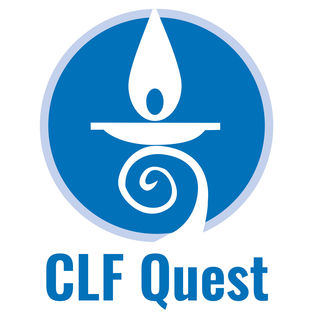
Quest Monthly Magazine
Church of the Larger Fellowship
Listen to sermons, poetry, reflections, prayers and meditations from Quest Monthly, a highly regarded Unitarian Universalist publication produced by the Church of the Larger Fellowship. The CLF is building a global spiritual community, rooted in profound love, that cultivates wonder, imagination, and the courage to act for justice. Learn more at questformeaning.org.
- In an Ancient Forest
AISHA HAUSER
Lead Ministry Team, Church of the Larger FellowshipOne of the most impactful trips I have ever been on in my life was with a friend to Olympic National Park in Washington State, specifically the Ancient Forest, an area that dates back to pre-contact, when only the indigenous people lived and thrived on this land, before the arrival of European settlers.
We were completely cut off from any of the digital and online life we were living. Being this off the grid took a bit of getting used to, however I quickly found something shifting in my physical body and my emotional state.
I felt calmer and inching closer to feeling relaxed. I hadn’t fully appreciated that there is a different kind of relaxation one feels when fully unplugged from anyone who isn’t in your physical presence.
Going into the ancient forest helped ground me while paradoxically allowing me to become more expansive at the same time.
Old growth and ancient grown forest ground contains layers upon layers of flora and fauna. In fact, the word “flora” means goddess in Latin. How fitting that divinity is part of the naming of these natural and sacred living entities.
The quiet of the forest is not silent. There is the rustling of the trees, the sound of a stream, birds chirping and the muffled sounds of our feet along the forest floor.
I felt myself release tension as I walked.
I placed my palms on the trees, leaning on them for comfort and solace.
It was truly a cleansing experience, a forest bath.
According to the National Geographic website:
The term emerged in Japan in the 1980s as a physiological and psychological exercise called shinrin-yoku (“forest bathing” or “taking in the forest atmosphere”). The purpose was twofold: to offer an eco-antidote to tech-boom burnout and to inspire residents to reconnect with and protect the country’s forests.
While the term ‘forest bathing’ may be relatively recent, humans have found ways to heal and cleanse while communing with nature throughout millenia.
Jesus prayed at the foot of olive trees in the Garden of Gethsemane.
The Bodhi tree also known as the Wisdom Tree is believed to be where the Buddha found enlightenment.
Integral to Pagan practices are communing with nature often among the trees.
While I did not find enlightenment during my time in the ancient forest, what I did find was a deeper connection to myself and the earth.
17 October 2024, 6:00 pm - On Covenant and Accountability
Rev. Dr. Michael Tino
Lead Ministry Team, Church of the Larger FellowshipRecently, I’ve heard more and more people wondering what is the place of covenant and accountability in Unitarian Universalism. In some circles, they have become almost dirty words–signs that we are somehow abandoning the individualist faith that so many people mistakenly think we are. And yet, both of these concepts are central to our faith.
Covenant consists of the sacred promises we make to one another. It is not a fixed set of beliefs, but rather a living understanding of how we are in community together. Covenants define the practices of Unitarian Universalism as well as what we are striving to create together.
As a faith movement, our congregations are bound to each other in covenant. That covenant is expressed in Article 2 of the Unitarian Universalist Association by-laws. It lives there because covenants and by-laws, unlike creeds, are meant to be changeable. As our understanding of our faith deepens, as our understanding of our world develops, and as the circle of our faith widens to welcome in those who have too long been marginalized, we must adapt the promises that hold us together.
And so it is that our covenant has been updated recently. Rather than simply asking our congregations to “affirm and promote” principles (a phrase that I came to see as the faith analog of the meaningless phrase “thoughts and prayers”), our new covenant asks us to engage in specific actions to live our faith in the world. It asks us to understand power, how it is abused to lead to oppression and exploitation, and to actively work to dismantle those things in our world. It asks us to commit to changing, growing, and repairing damaged relationships. It asks us to create fully accessible and inclusive communities, and to embrace our differences as we learn from one another.
These are good promises, solid promises that, if we keep them, will help us center our faith in love and live from the values we claim: justice, equity, transformation, pluralism, interdependence, and generosity.
But what if we don’t keep our promises?
That’s where accountability comes in.
In 1646, the congregations in the New England colonies brought delegates together to discuss how they would be governed. The 1648 Cambridge Platform has served since then as the basis for what we call “congregational polity,” the way in which Unitarian Universalist congregations still come together. Even in 1648, congregations realized that one of their responsibilities to each other was to be able to hold each other accountable to the practices and ideals of their faith.
How this happens has changed a lot since 1648, but it has not ceased to be part of the relationship among congregations. We are collectively responsible for the covenant of our faith. And so, we have to be collectively responsible for asking our sibling UUs to be accountable to that covenant.
Accountability does not mean punishment, nor does it mean banishment, like so many people seem to fear. It does mean that we are allowed to ask each other to do better. It means that we are allowed to point out when each others’ actions fall short of the values we claim. Yes, it might mean that we are going to have to get used to giving and receiving constructive, loving criticism.
For too long, our faith has been mired in a hyper-individualism that is good for no one. We are not the faith where, as some claim, one can believe or do whatever one wants to. We are instead a faith where we proudly center our interdependence with one another, a faith that insists that none of us are in this alone.
In the back of our hymnal is an uncredited (anonymous) reading that blesses us with these words: “May we know once again that we are not isolated beings, but connected, in mystery and miracle, to the universe, to this community, and to
each other.”To these words, I add this: May our connection to each other be grounded in covenant. May it be a connection of mutual accountability and growth. May it be a connection that helps us all live with love at the center of our lives.
11 September 2024, 3:51 pm - Solidarity as Resistance
Companioning One Another Through These Times
by Nicole Pressley
Organizing Strategy Director, Side With Love – Unitarian Universalist AssociationOn November 15, 2015, the Minneapolis Police Department killed a black man named Jamar Clark. That night, community members, organizers, and activists formed an encampment outside the Fourth Precinct to demand the release of the body camera footage and justice for Jamar Clark. For 20 days, as the Minnesota winter set in, businesses, organizations, unions, and people came together to build and sustain community. Meals were served, warm clothing was provided, and systems of care, security, and conflict resolution were designed. People danced. People sang. And people preached.
On a very late night, as many of us huddled under the propane heaters donated by the Sierra Club, Rev. Danny Givens preached a sermon about Henrietta Lacks, a black woman whose cells were used without her consent to lead to breakthroughs in science. He called us to remember the many ways in which that violation of black bodies feeds heteropatriarchal capitalism. He invited us into the powerful call to ground our work demanding justice for Jamar Clark in a broader demand to dismantle state violence and commit ourselves to black liberation.
This was the beginning of my journey into Unitarian Universalism. Rev. Danny Givens worked at Unity Church in St. Paul. At this encampment, I experienced “church” and activism in a new and powerful way that transformed my relationship to both. In my prior experience, sermons were delivered from ornate pulpits in the comfort of a building, not on a cold wet street under the threat of arrest and violence from police and white supremacists. The primary subjects were usually men whose stories felt too far away to be easily relevant to the struggles I find to be critical, as a black queer woman. Instead, he elevated the story of a black woman. Instead of focusing on salvation as a reward for our good deeds after death, he opened us up to the possibility of transformation and liberation as an urgent spiritual and political practice.
I reflected on this moment recently as I stood in solidarity with students at their encampment at Northeastern University. I was in Boston because I had the honor of being the respondent to the Minns Lecture, an annual Unitarian Universalist theological presentation, offered by Rev. Jason Lydon a few days previous. Rev. Jason spoke about the UU Service Committee’s National Moratorium on Prison Construction. He opened his remarks with the connection between the police violence against students on Emerson College’s campus and that of the cruelty of the prison system. At the Shabbat service that followed the early morning raid and arrests of Northeastern students, attendees discussed the police repression on Emory’s campus and at Stop Cop City actions in Atlanta. In the midst of this political action, the U.S. Supreme Court heard a case on the criminalization of encampments of unhoused people across the country. With the Court’s ruling in favor of criminalization, students at elite universities and their unhoused neighbors will sit in the same jails, with the same charges, and for different reasons with vastly different resources. I think about how our jails will fill with trans people, medical professionals, and people seeking abortions, because life-saving care is also criminalized.
“If they take you in the morning, they will be come for us that night.”
—James BaldwinBaldwin wrote these words on November 19, 1970 in a letter to Angela Davis in solidarity after her arrest. These words are not a warning like those we usually hear, “you’ll be next,” or, “first they came for…”. It is an understanding. Baldwin knows, deeply, that being targeted by the state can happen to anyone who finds themselves out of favor with those in power. LGBTQ, BIPOC, and disabled people, union organizers, sex workers, the unhoused, even women in bathing suits have found themselves the target of state based violence.
Criminalization as a tactic is not new, yet under increasingly fascist conditions in this country, we may find the connections between our struggles more easily.
As I wrote in this year’s 30 Days of Love, a project of the UUA’s Side with Love campaign: “before criminalization becomes a political tactic of disconnection and domination, it is first a spiritual acquiescence to dehumanization and disposability. We deny a moral mandate of mutuality in search of the protection of power over others.” Too often, we take up solidarity in a reaction to a threat. We use it as a political strategy, attempting to build larger coalitions as a means to pass or block legislation or win some other material demand for our communities. I hope that instead, like Baldwin, we can begin to know in our bones that our liberation is inextricably bound — that maybe, we are not just all we have, but we, together, are all we need.
7 August 2024, 6:29 pm - Leaning Into a Generosity of Spirit
My childhood consisted of navigating what it meant to grow up Egyptian in America. My mother spoke only in Arabic, and she very much passed on the traditions of our culture to my sister and me. She cooked delicious Egyptian meals, told us stories from her childhood and she taught us the ways to be a good Muslim, in an effort to raise us as devout as she was.
One of the lessons that I embody from my childhood is that of generosity. Not only of money, but also of spirit. The Muslim faith mandates generosity and giving to those who have less.
While I have never been a devout Muslim the way my mother still is, I remember that she donated money every year to help feed poor Muslims during the Eid (the feast marking the end of the holy month of Ramadan). She did this even when we were on public assistance. One year, I let her know that I thought we didn’t have enough to give to others, but she responded that since the government was helping us, we were mandated to help others.
My mother and I have had our share of disagreements and challenges over the years, but her spirit of generosity is one lesson that I have held dear and been grateful for, and that I try to replicate. In my personal life, this is something that I have easily embraced. This is not something that is as prevalent in modern U.S. society.
It has been more than a little disheartening to witness the dialogue about student debt forgiveness and universal basic income. I have heard people lament that they had to pay off their debt, so why should anyone else be “let off the hook.” When I bring up universal basic income people immediately dismiss it as unrealistic and one person asked me what the incentive would be to work. I responded by asking what the incentive is now. Is it death? Is that really the society we want to maintain? Don’t we want to support people not only living, but thriving and experiencing joy and creativity in ways that nourish our spirits?
These are just two examples of the ways I experience a lack of generosity of spirit in the United States. We find ways to make people “earn a living.” Instead of affirming the value and inherent worth of every person by offering a universal basic income, universal healthcare and free college education (thereby preventing student debt to begin with), this country asserts a scarcity mentality and creates barriers for thriving.
There is no reason to live this way except the stories we tell ourselves. While I know that the idea of transforming our systems is daunting to think about, we do have it in us to practice a generosity of spirit in the ways available to us.
I have witnessed examples of mutual aid that not only centers generosity of money, but also food donations. One wonderful example is Lasagna Love (lasagnalove.org), a continental organization that pairs people who want to cook a homemade lasagna with folks who would love to receive one. What a caring and generous way to affirm community care.
If you are interested in finding out what mutual aid programs exist in your community, and you have access to the internet, you can check out Mutual Aid Hub (www.mutualaidhub.org) for a map and list of organizations. The website hosts the networks across the United States, the organizers want to connect people but they do not vet or endorse any of the programs; please research once you find one you would be interested in.
These are ways that communities are embracing a generosity of spirit and community care. These initiatives feed my spirit and offer hope for the ways that society is already shifting to one that rejects scarcity and embraces abundance.
4 June 2024, 5:03 pm - Fully Accessible and Inclusive
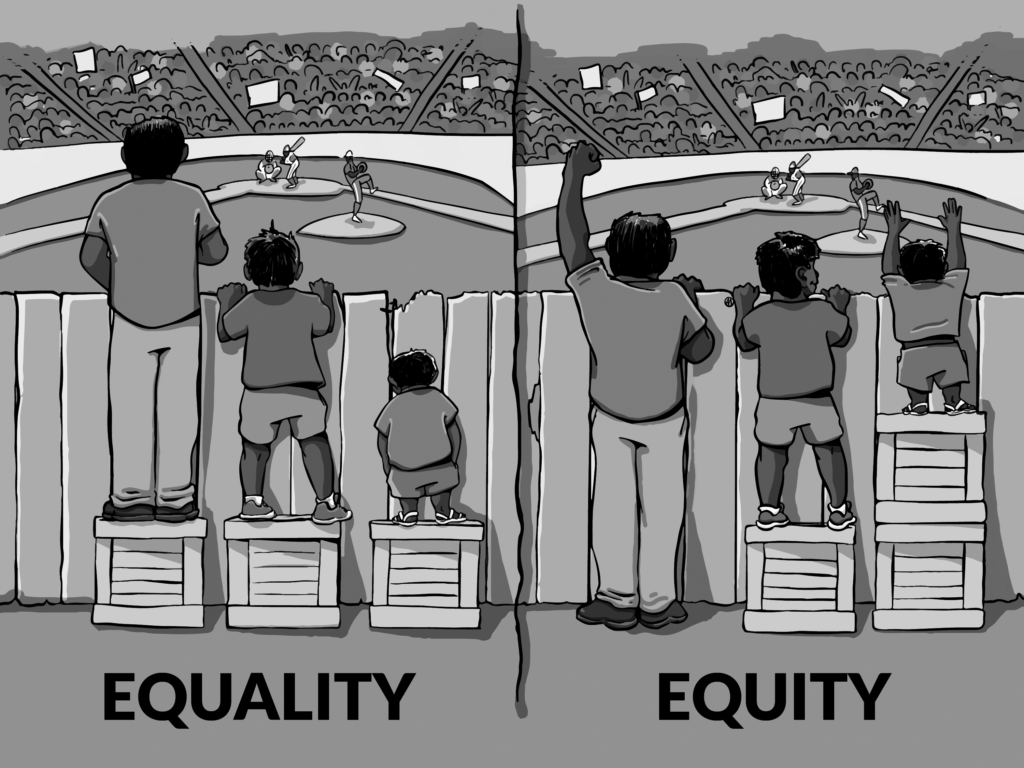
Interaction Institute for Social Change | Artist: Angus Maguire.
Perhaps you have seen the widespread cartoon image that illustrates the difference between “equality” and “equity” [above]. First drawn in 2012 by Dr. Craig Froehle, it shows two panels. In each, three people of varying heights are trying to watch a baseball game over a fence, and they have three crates to stand on. In the scenario labeled “equality,” everyone gets one crate, which allows the tallest person to tower over the fence, but the smallest person still can’t see the game. In the scenario labeled “equity,” the crates are distributed so that everyone can see over the fence.
I’ve been thinking a lot about this cartoon as Unitarian Universalists discuss naming equity as one of the core values of our faith. Specifically, I’ve been thinking about why there is a wooden fence in the first place, and about all of the people in the stands whose access to the game doesn’t depend on the distribution of crates.
If someone were to attend the game in a wheelchair, they’d need more than crates to see over the fence. They’d need an expensive ticket, and a ballpark policy that carves out appropriate and desirable places for wheelchairs to be. (It is purely coincidental but illustrative that this week, a friend who uses a wheelchair and loves baseball took to Facebook to decry the ways in which several major league teams make it harder for him to attend games by putting additional steps in place if one wants to buy a wheelchair-accessible seat.)
It seems to me that true equity is that everyone has access to the game in a way that fits their bodies and brains and not their wallets or the willingness of someone to give them a temporary boost.
It wasn’t until I decided to write about this cartoon, though, that I learned that its original creator researches inequities in healthcare. This makes the difference between getting into the ballpark and trying to see over the fence even more stark. For too many people, inequity leads to death.
I have hope that our Unitarian Universalist embrace of equity will be deeper and more meaningful than a cartoon. Part of the proposed language for what would be our core values reads that “we covenant to use our time, wisdom, attention, and money to build and sustain fully accessible and inclusive communities.”
If we are really serious about equity, then, we will work to make our communities—inside and outside of our congregations—fully accessible and inclusive.
This means accessible and inclusive to all bodies. This means accessible and inclusive to different ways that brains work. This means accessible and inclusive to people with different financial means. That means accessible and inclusive to people with histories of trauma and also those who are imprisoned.
It also means that Unitarian Universalists are called to understand ourselves as part of accessible and inclusive communities, so that when we build structures that allow everyone to be part of things, they don’t come across as unfair or unequal.
Have you ever complained that someone else got a crate to see over the fence, even if you didn’t need one? Sadly, over my years as a minister I’ve fielded way too many similar complaints.
Instead, let us tear down that fence and let everyone into the game. Let’s create space where we can all have the place we need to participate, and where we don’t resent the full participation of others.
9 May 2024, 4:00 pm - Equity
What does it mean to value equity? How does it look?
Darrell
CLF Member, incarcerated in CATo be honest, at first I thought this theme might be about real estate. Then my mind switched gears and I began to grasp the foundational meaning of the word equity — value! Upon taking the backseat of my life’s vehicle (I tend to let the Universe do the driving nowadays), I’ve become more conscious of our society in regards to our behavior towards ourselves and others.
When I was in my late teens, an older guy once told me, “people that live in lower class environments are blind to their true worth and potential.” Hopefully this same individual has come to the realization that this imaginary blindfold can be worn by individuals from all walks of life, expanding all over the planet. Do we exhibit self-value when we fill our bodies up with harmful narcotics? Are we expressing our self-value by overindulging and drinking alcoholic beverages? Is self-value being shown by the clothes we wear, cars we drive, people we socialize with, and the amount of money we possess? What is self-value anyway? Does self-value (or acknowledging that you have self-value) determine how you treat or value others?
Someone asked me a few years ago if I would rather be loved or valued. What a profound question! Not knowing the meaning of self-value back then, I decided to choose love, because I was ten times more familiar with its existence. If you were to ask me that same question right now, I would say both — but overall, I would rather be valued.
Why? Consider the society that we all are experiencing together. This country runs off capitalism. I hear people say, “money isn’t everything,” and I would concur. But let’s be honest with ourselves for a moment: everything you need to survive in this society only becomes available through the exchange of currency (food/clothing/shelter). This economy has a strong influence over its inhabitants that leads them to place value on people, places, and things when, in all actuality, the majority of those objects (or subjects) have no value at all.
Let’s face it, everybody might not love their boss, but we all value our paycheck because it helps pay our bills, provides clothes for our children, keeps gas in our cars, and so on and so on. This emotion that we call love can be fleeting at times. We all know what it feels like but half of us have a hard time expressing it, because of fear of getting hurt or it not being reciprocated. Some of us don’t even know what love looks like when other people display it to us through their actions. I see way more conditional love then I see unconditional love (which is true love).
This is my suggestion on what I believe this country needs to place value in: God/higher power/nature/knowledge/wisdom/and understanding of various aspects of the Universe and how we correlate to them. We need to place value in our physical well-being, mental well-being, emotional and spiritual well-being and the well-being of our Mother Earth. We need to place value in positive, powerful, and uplifting beliefs about ourselves and others, and build a positive attitude towards life, self, and others. We need to value unconditional love, family ties, real friends, discovering one’s purpose in life — and so much more.
As I continue to build equity in my life experience, I am forced to go with the flow of the collective consciousness that sees value in some of the most ridiculous things. I will never confirm their beliefs, nor will I condemn them. I will only adapt and use my awareness of this knowledge in a way that will empower me and along the path towards true prosperity. We are all more than worthy!
Kathleen
CLF member, incarcerated in VAFirst, let us look at what equity means.. Webster’s dictionary defines equity as: the quality, state, or ideal of being just, fair and impartial. The first thing that stands out to me in that definition is the word ideal. I’ve been feeling a lot lately that as Americans, we are not living up to our ideals, equity being one of them. I feel that this is because we are often alienated from one another due to our so-called differences. I think that equity means putting aside our differences and looking through them, to the throbbing, pulsing, living divinity that exists in each one of us.
Equity means that I want for you what I want for myself. Equity is not selfish. As a trans woman of color, I think the more we fight for equity, the more it becomes exacerbated in the media, and people become fatigued by slogans. Many people are tired of hearing us rally for justice in an unjust world. So what do we do, where do we turn?
I think the key is trying to relate to each person, even when they do not want to relate to us – whoever they are. Because in the big picture, it really isn’t us vs. them. It’s just us. I think it’s time for the world to see that.
9 May 2024, 3:30 pm - An Artist’s Prayer
Seamus Vonn-Jernigan
CLF member, incarcerated in OR
Oh Great Creator,
We are humbled to have been created by you and to witness your creativity flow through us daily. We understand that we are your instruments of peace, play and innovation, and intend to funnel your imagination through our very existence.
We are your hands, that sculpt the clay and paint the canvas.
We are your eyes, that capture a photograph and perfect a design.
We are your ears, listening to the harmonies among the song of birds, crash of waves, cries of babies and the wisp of the wind.
We are your feet, that dance across the stage, and your arms, that conduct a symphony.
We are your words, that form haiku and fill pages to create great novels.
We are your voice, that sings in the choir and whispers our prayers
at night.We are your laugh, that fosters joy and heals our souls.
We are your mind, that seeks the truth and guides us to think
objectively.We are your heart, that allows us to love our neighbors and forgive our enemies.
We are your spirit, that shepherds us to share peace and compassion with each person we meet and to extend grace to all, especially those who appear to deserve it the least, as they need it the most.
We are your creation, and your creativity lives on through us.
What we dream in our minds, help us to believe in our hearts. What we believe in our hearts, help us to cultivate in our lives.
In the name of the Great Creator,
Amen.
9 May 2024, 3:00 pm - Untitled Artwork
Thomas
CLF Member, incarcerated in IN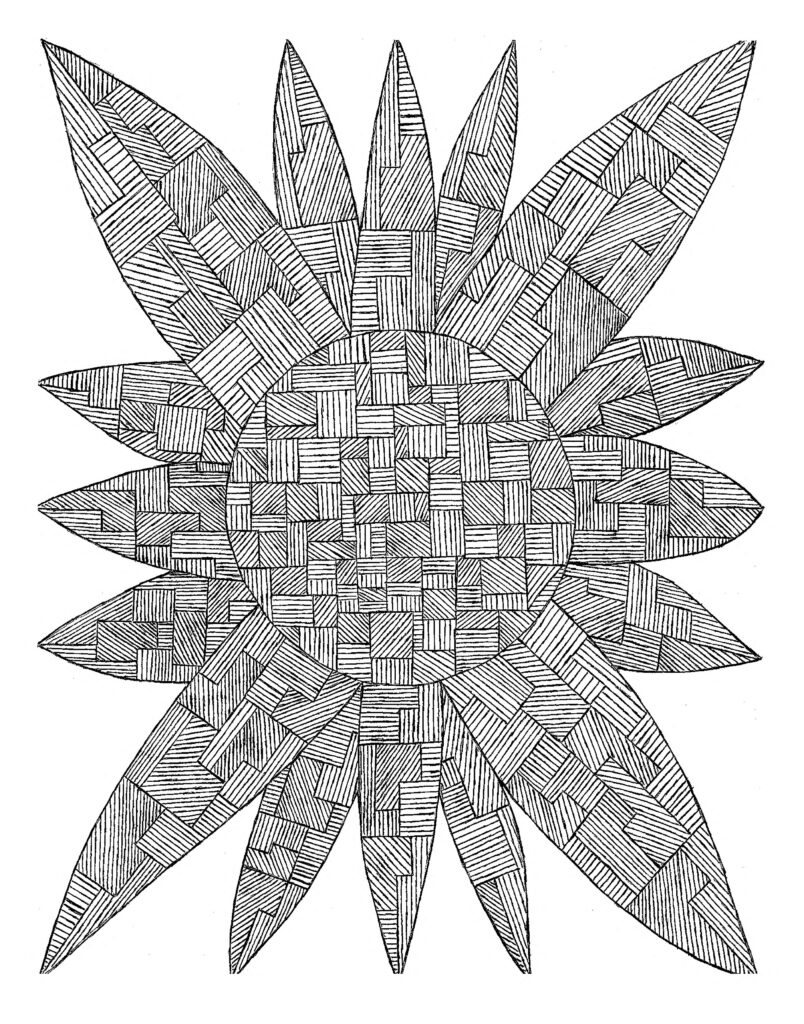
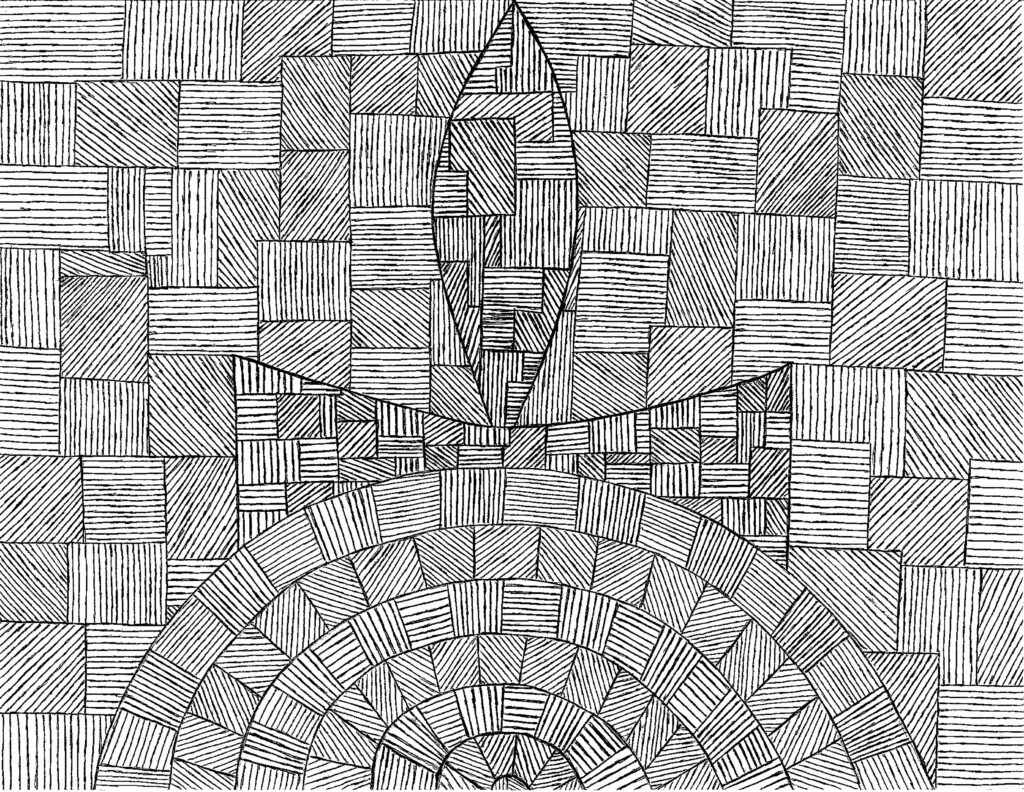 9 May 2024, 2:30 pm
9 May 2024, 2:30 pm - Changing Together
When I think about transformation, I often think of when people say they had a “transformational experience,” or when, as religious professionals, we look for the ways in which ministry can be transformational for our congregants.
And it gets me thinking: What is all this transformation about? In my experience, a lot of people really don’t like change. Even people who say they want to be “transformed” also can really not like change! Why would we seek that which we can’t actually embrace? I tend to think it is because our entire human experience is leading to an ultimate transformation which we cannot know the result: death. So sometimes we are, at best, ambivalent, and other times outright hostile to change.
Octavia Butler’s Parable of the Sower is one of my favorite books about Change. Because in the book she explores the idea that God is not some distant almighty spirit, but rather the very up close and real experience of Change (capital C.) What an exciting idea to explore! Her most often quoted refrain from the book, and that which the central characters revolve, is “All that you touch You Change. All that you Change Changes you. The only lasting truth is Change. God is Change.”
When I first read that phrase as a young adult, it blew my mind! I loved it. I loved the capitalizations which conveyed the idea that what we’re reading in the capitalized word carried with it the reverence of the word God. Here was a religion I could get behind. The idea that I could continually be both transformational and transformed?! Wow!
This idea helped me look at the changes in my young adult life in a new way. It helped me realize that while there was change that I couldn’t control, I could still make that change part of my life. And it helped me realize that I had a deep responsibility for the Change that I created in the world. That Butler chose to capitalize the Y in “All that you touch You Change” was something I thought about frequently. That I continue to think about when faced with difficult situations and decisions.
In Parable of the Sower, the people who couldn’t change, couldn’t adapt, those who desperately clung to racism, sexism, and fascism, did not survive the new climate changed landscape. They met the ultimate Transformation while resisting the very changes which could have helped their survival. And when I think about the difficulties we face as Unitarian Universalists, I think about what it is we are resisting and could those things be the very things that can prepare us for survival?
In creating the community structures of Parable of the Sower, Butler relies heavily on the community building foundations seen in the “We” culture communities in which she was raised. “We” culture communities in the U.S. are most often found in Black, Latinx, Asian, and Indigenous peoples as well as other BIPOC communities. Among many “We” cultural values, most strikingly, the requirement of putting group needs ahead of the individual needs is foundational in Parable of the Sower.
So I wonder: What would it look like to put the needs of our entire faith community ahead of our individual needs? What are the needs of Unitarian Universalism at large? How do we meet those needs even when it feels like we are not getting what we want as individuals? This feels a lot like the conversations which are going on right now around the proposed changes to the UU Principles and Sources, often referred to as Article II.
As we’ve written about in recent issues of Quest, our denomination is in the process of adopting new language to articulate and ground our faith community. This new language is framed as seven UU values: Justice, Equity, Transformation, Pluralism, Interdependence, Generosity and Love.
I wonder if haven’t we actually already made these changes in spirit. Haven’t we already touched, and thus Changed how we practice Unitarian Universalism? What if the proposed changes — the new UU values — are simply the language catching up to the spirit of Unitarian Universalism?
Perhaps we have already touched and been Changed. Because in the end, Change cannot be successfully resisted but it certainly can be influenced. And we can do so together. ′
15 April 2024, 3:30 pm - Transformation
How do we remain open to change and transformation?
JACK
CLF Member, incarcerated in MATransforming is the action of changing every day, and each and every one of us is witness to transforming experiences whether we know it or not.
For those of us in prison: we meet new inmates, new staff. We are exposed to expressions of concern, love, happiness, sadness, sorrow, and even fear. Every one of our senses meets something new or different, something we had not noticed before, something we had not heard before or smelled before, and we can be open to being transformed by them.
So often we think over the years that nothing is new, and prison life never changes; one day in prison can seem like any other. You know what day it is only by what food is served. But each day is new, each day is different. Each day has the opportunity for us to think differently, discover something new, something we didn’t know before. You may discover someone you had only passed in the hall, someone different from those you talk with every day.
Journaling is one of the best ways of always looking for that one thing, that one day that was new. It may be the one thing that transformed your day into something different, or that offered you the opportunity to be transformed in ways we had never thought possible. Use your senses. Look around. Let your mind out of the cell around you. Let your thoughts roam. Dare to be transformed, to welcome change.
JACOB
CLF Member, incarcerated in ARBeing open to change and transformation is an important part of growing spiritually, maturing and succeeding in life. Transformation is to change or alter in some way shape or form. To remain open to this means to put yourself in situations, to experience new things, to learn — especially to learn of other cultures and religions and practice the knowledge you’ve gained.
By keeping your mind open, you stay open to growth, change, and transformation, but you have to want to.
JASON
CLF member, incarcerated in ILTransformation is an interesting word, especially for someone who has been in institutions for as long as I have.
As I write the word transformation, it makes me think of who and what I used to be. When I was younger, I was full of hate and fear. I acted impulsively and reacted to what people said or did towards me, which got me into a lot of trouble, as well as a number of fights.
Now, I’m no longer filled with hate, and though I still have some fears, they are nowhere near as bad as the ones I used to have. Now, instead of reacting to what people say or do, I take a mental step back, think things through, and then respond to them.
Now, because of the changes I have made and continue to make as I work to transform myself into the person I want to be, my life is a lot less stressful than it could be.
15 April 2024, 3:00 pm - Your Transformations
Frances Koziar
CLF memberOur transformations
are our own, paths we choose
but are never forced to take.What doesn’t kill you does not
make you stronger, but—
you can choose for it to,
learn lessons from your suffering
that help you create what you believe in.And those transformations are yours
to be proud of, no one
gets to take credit for the good inside of you
or the skills you have worked on, especially
not those who have abused you.Because you choose your self
if not your path, and that has always
been your strength.15 April 2024, 2:30 pm - More Episodes? Get the App
Your feedback is valuable to us. Should you encounter any bugs, glitches, lack of functionality or other problems, please email us on [email protected] or join Moon.FM Telegram Group where you can talk directly to the dev team who are happy to answer any queries.
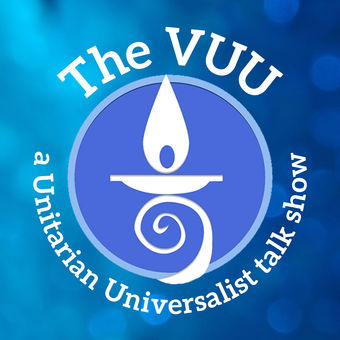 The VUU
The VUU
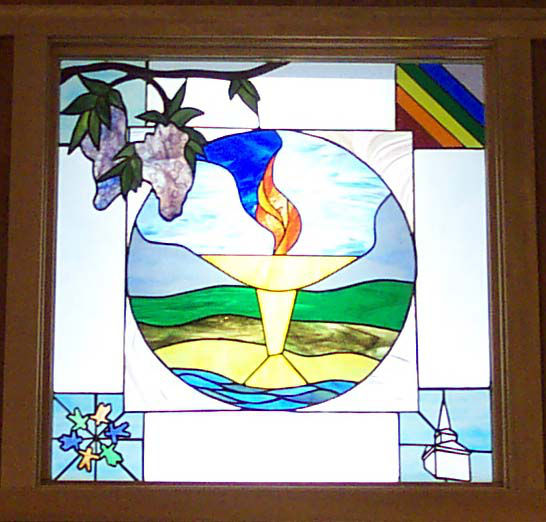 Starr King Unitarian Universalist Church
Starr King Unitarian Universalist Church
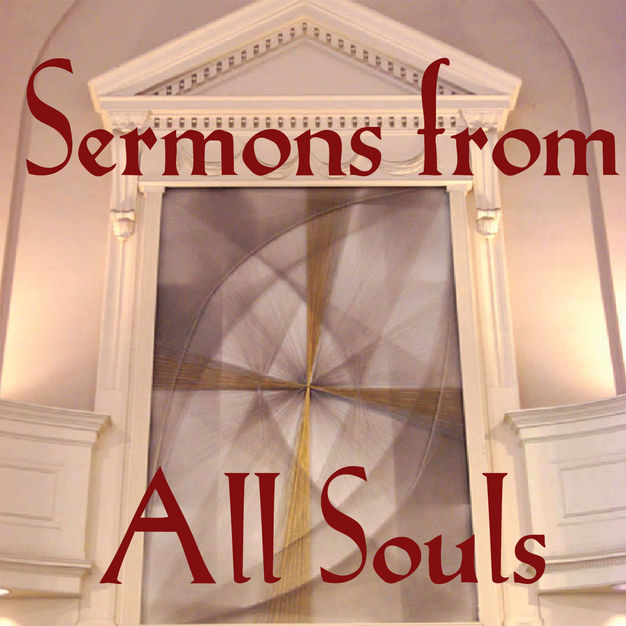 All Souls Unitarian Church, New York City: Sunday Sermons
All Souls Unitarian Church, New York City: Sunday Sermons
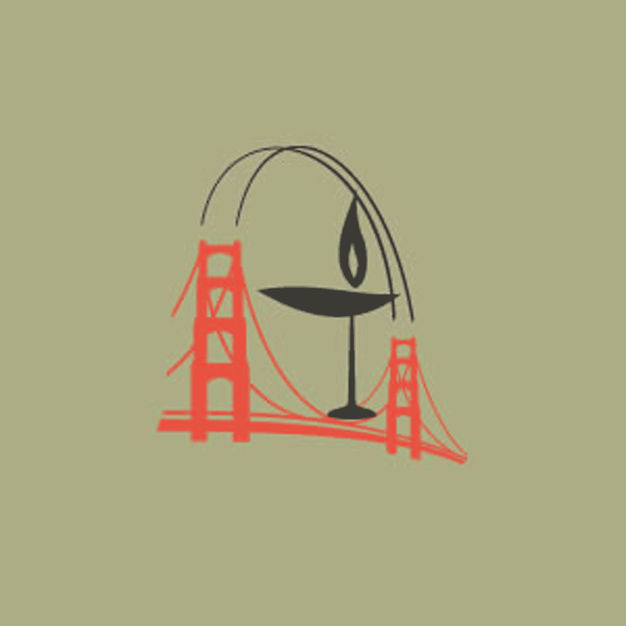 Sermons-First Unitarian Universalist Society of San Francisco
Sermons-First Unitarian Universalist Society of San Francisco
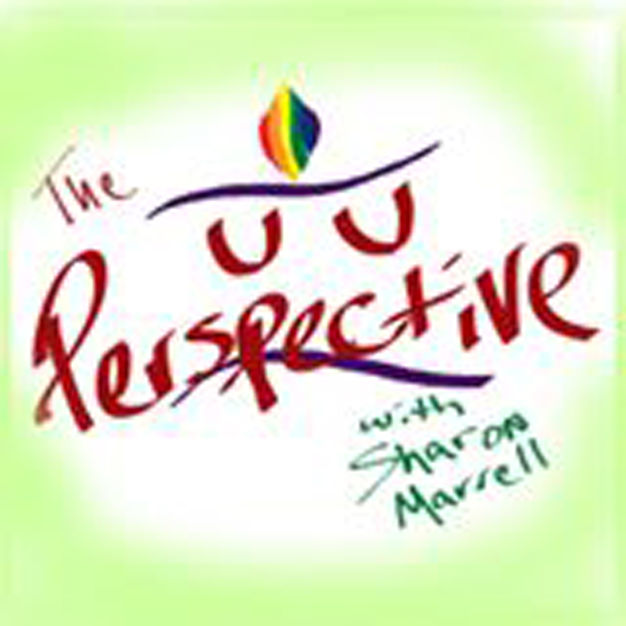 Unitarian Universalist: The UU Perspective
Unitarian Universalist: The UU Perspective